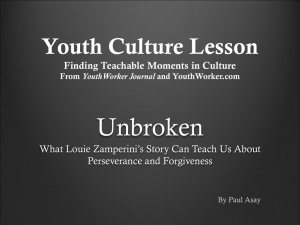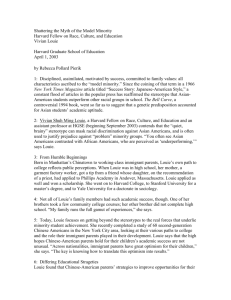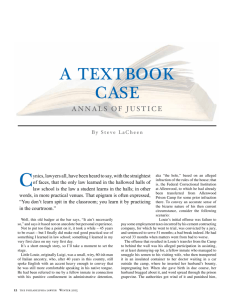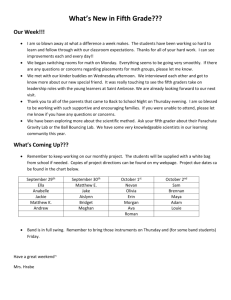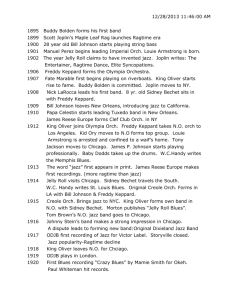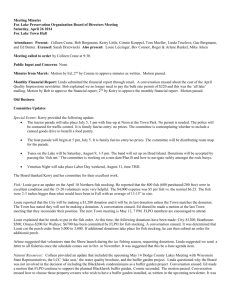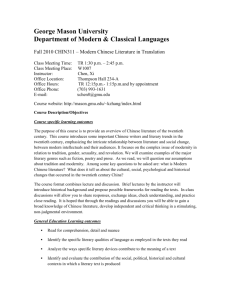File - thegamerguyryan
advertisement
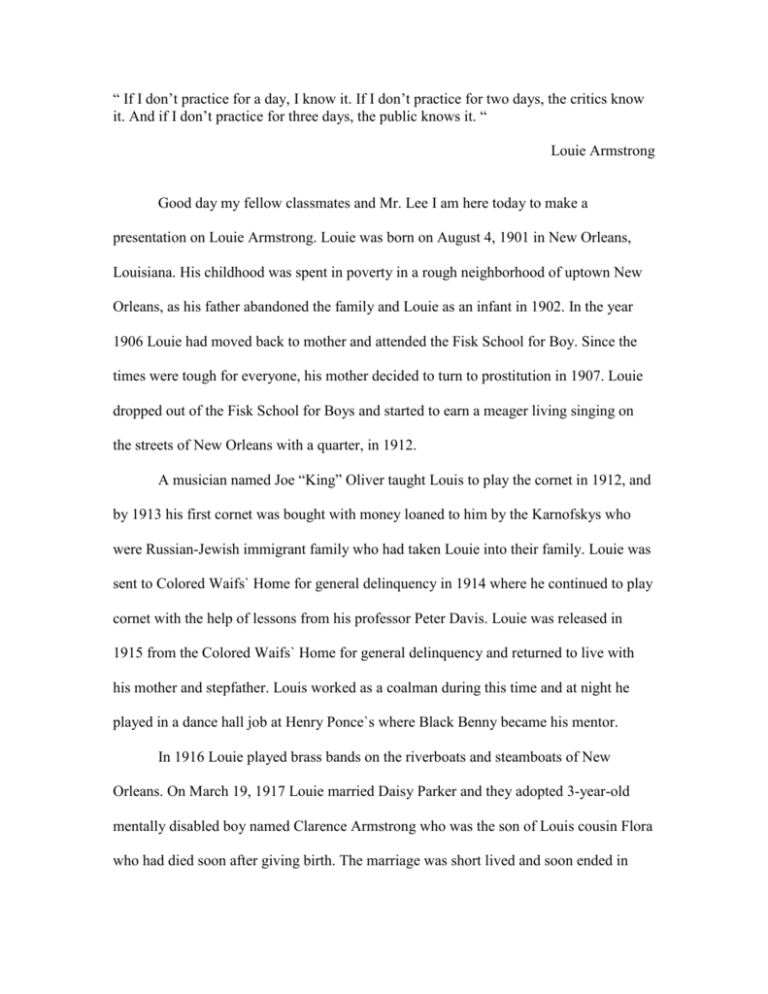
“ If I don’t practice for a day, I know it. If I don’t practice for two days, the critics know it. And if I don’t practice for three days, the public knows it. “ Louie Armstrong Good day my fellow classmates and Mr. Lee I am here today to make a presentation on Louie Armstrong. Louie was born on August 4, 1901 in New Orleans, Louisiana. His childhood was spent in poverty in a rough neighborhood of uptown New Orleans, as his father abandoned the family and Louie as an infant in 1902. In the year 1906 Louie had moved back to mother and attended the Fisk School for Boy. Since the times were tough for everyone, his mother decided to turn to prostitution in 1907. Louie dropped out of the Fisk School for Boys and started to earn a meager living singing on the streets of New Orleans with a quarter, in 1912. A musician named Joe “King” Oliver taught Louis to play the cornet in 1912, and by 1913 his first cornet was bought with money loaned to him by the Karnofskys who were Russian-Jewish immigrant family who had taken Louie into their family. Louie was sent to Colored Waifs` Home for general delinquency in 1914 where he continued to play cornet with the help of lessons from his professor Peter Davis. Louie was released in 1915 from the Colored Waifs` Home for general delinquency and returned to live with his mother and stepfather. Louis worked as a coalman during this time and at night he played in a dance hall job at Henry Ponce`s where Black Benny became his mentor. In 1916 Louie played brass bands on the riverboats and steamboats of New Orleans. On March 19, 1917 Louie married Daisy Parker and they adopted 3-year-old mentally disabled boy named Clarence Armstrong who was the son of Louis cousin Flora who had died soon after giving birth. The marriage was short lived and soon ended in divorce. Louie then became second trumpet for the Tuxedo Brass Band, which was a society band in 1919 and by the year 1921 Louie had learned to read music. Soon after by 1922 he had joined the influential hot jazz band called Creole Jazz Band in Chicago playing with musicians such as his friend Bix Beiderbecke. Louie then married, Lillian (lil) Hardin who was Oliver’s pianist. Years later in the year of 1937 Louie became the first black to host a sponsored, national radio broadcast, and a year later in 1938 he divorced Lillian and got married to his long time girlfriend Alpha. Once again his marriage didn’t last more than a few years and by 1942 Louie was married to his fourth wife, Lucielle Wilson, a singer at the Colton Club. So him and Lucielle in 1943 moved into the house in Queens that has become the Armstrong Archives. Ha made the movie Cabin In the Sky and The Five Pennies starring Danny Kaye. Louie spoke out against racial discrimination and publicly condemned the violence that swept Little Rock over school integration in the year 1957. Only two years after that in 1959 Armstrong was hospitalized due to a heart attack. From there he slowed down on life. Louie recorded his last hit “ What a Wonderful World” in the year 1968. Sadly, only three years after that on July 6, 1970 Louie Armstrong died at the age 69, at Corona, Queens, New York City. Even though Louie had passed away years before, Louie was inducted into the Rock and Roll Hall of Fame as an “early influence.” Louie was and still is a famous person. He was known for being am American Jazz musician during the early 20th century. When he was growing up he was known for his skilled trumpet playing, characteristically deep voice, and charisma. I think Louie isn’t only known for his skilled trumpet playing or being the first soloist of the time but he is also known for crossing the color barrier when it was virtually impossible to cross during the 20th century. Since Louie crossed the color barrier and grew up during the most racist part of time in the United States history, I would say that Louie is an honorable man. I say this because he was not nor did he show that he was afraid of what could happen to him to make his dreams come true. Of course he knew that a lot of people just wanted to enjoy the entertainment that they were given, but he didn’t do it for the people he did it because he loved to play. Some of you may ask, “What are the lessons you can learn from Louie Armstrong’s accomplishments?” Well, to answer this question you need to know a few of his accomplishments first. Three of the most important accomplishments that Louie had were: one, to inspire people to follow their dreams; two, to play a jazz solo, play the trumpet during the Harlem Renaissance, and was an American cultural icon; finally, third was to change the world of jazz.

